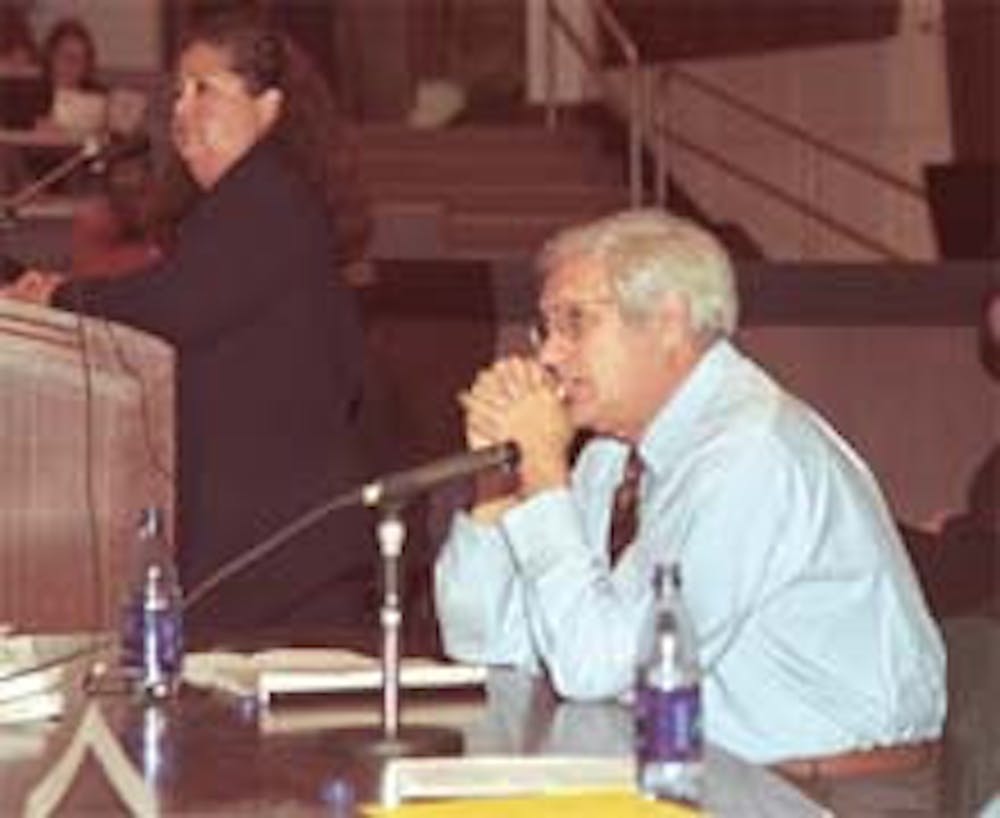With state's tribal gaming compacts expiring this summer and many confused about the three propositions affecting gaming during this year's election, a representative for each proposition attended a debate at ASU's College of Law Wednesday night to defend their point of view.
Annette Brown, attorney for the Colorado River Indian Tribes, spoke in defense of Proposition 200.
"This is the only one that stays true to the original intent of Indian gaming — additional income to provide services to members," Brown said about the initiative that would earmark 3 percent of tribal net income to provide scholarships and elderly health care services.
She added that everyone in Arizona would benefit from this initiative.
"Every person benefits because the scholarships are for both non-tribal and tribal members," Brown said.
Brown said the other two propositions ask for too much.
"201 and 202 are about greed," Brown said. "But 200 is about need."
Attorney for the Coalition for Arizona Neil Wake spoke on behalf of Proposition 201, saying the initiative would allow horse and dog racetracks to have slot machines, which is currently illegal.
With Proposition 201, 40 percent of the tracks' and 8 percent of the tribes' gross income will go for more projects than that of proposition 200, including rural health care and city and town police, fire and emergency services.
Executive Director of Arizona Indian Gaming Association David LaSarte represented the supporters of Proposition 202 and pointed out that Wake only discussed his disapproval of 200 and 202 and didn't support his proposition, 201.
"He just wants all three to fail," LaSarte said in reference to Wake.
LaSarte added that rural tribes are currently having problems obtaining revenue from gaming because they are in areas that are not easily accessible to potential customers.
Each tribe can have a certain number of slot machines on their land, but with this initiative, the rural tribes could place theirs in urban areas, such as Phoenix.
Proposition 202 also states that rural tribes would have to pay less of their revenue to the state for government programs.
He emphasized the importance of people voting if they want gaming to continue in Arizona.
"Next year the compacts expire and if an initiative doesn't pass, gaming will become illegal," LaSarte said.
Reach the reporter at susan.padilla@asu.edu.




